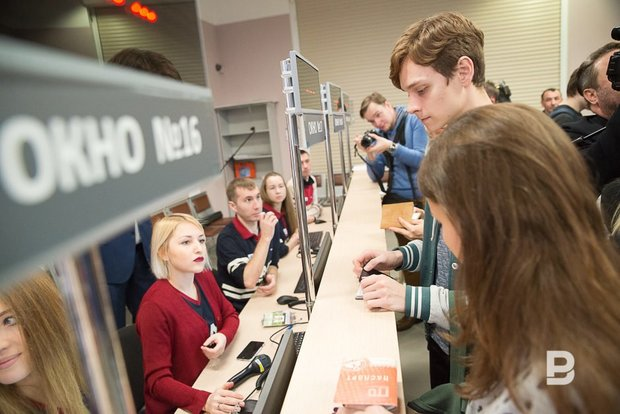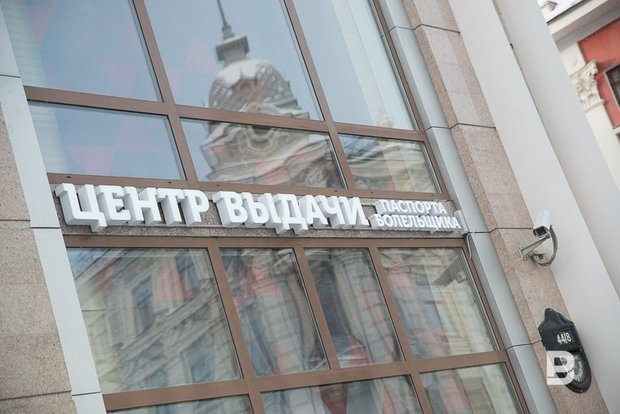How FAN ID kills Russian football
The attendance of football matches has already decreased by a third, but it can get much worse in spring
It has become mandatory to have a FAN ID for all stadiums of the Russian Premier League since January. And judging by how fans went to matches in five test cities in autumn, this can mean a greater fall in interest in Russian football. Realnoe Vremya’s sports staff sorts the situation out and explains how the attendance of Russian Premier League matches suffered with the launch of FAN IDs, why fans do not go to stadiums anymore and what stop factors stop people from obtaining this ID.
FAN ID as side effect of “the best World Cup in history”
It might seem what can make Russian football more digestible? Far from the football atmosphere and quite a specific game based on the rival most teams of the Russian Premier League stick with, they didn’t inspire a fan to go and spend three hours of his or her free time at a stadium. And spend honestly earned money. But lawmakers had trump cards in their sleeves and they took out the old story of the launch of the FAN ID.
Seemingly, the thinkers liked the experience of the 2017 Confederations Cup and the following 2018 World Cup in Russia where besides the tickets purchased to access stadiums every fan had to have an accreditation with a photo and personal information. Then, this decision looked logical and even progressive. It is an amazing measure designed to exclude dangerous elements with destructive behaviour and avoid incidents during such big events.
Both the Confederations Cup and the World Cup indeed were perfect, an exclusively friendly atmosphere with healthy rivalry reigned during matches, there wasn’t registered any case our country would feel shame on the world stage. Even after such an unusual WC that was held in Qatar late last year.

However, not everything that suits well a princess will look good on her maid. The State Duma decided not to think about it and without spending much time to analyse the consequences and to adopt a law on the introduction of the FAN ID for Russian Premier League (RPL) matches for consideration.
This initiative quite expectedly caused a negative backlash among fans of RPL clubs. Active fans have already expressed their opinion on social media and at stadiums with slogans like “A fan is not a criminal” or “Football for fans, not police.” They warned they would boycott matches of their teams if the law on the introduction of the FAN ID would be adopted. Such repulsion can be understood — people just stopped using QR codes and are immediately offered to apply for another one to simply cheer for their team at the stadium in person.
In late 2021, on 30 December, Vladimir Putin signed a bill, and by the beginning of this football season in the RPL, there was chosen a list of stadiums that would become test venues to access with the FAN ID only. It is Fisht in Sochi, Yekaterinburg Arena (Yekaterinburg), Rostov Arena (Rostov-on-Don), Nizhny Novgorod and Solidarity Samara Arena.
Then the situation started to develop as it was expected: a widespread fall in the attendance in all the cities where the Fan ID was launched. For instance, just 2.997 fans came to the first home match in Yekaterinburg (all test stadiums hosted third matches) — the worst figure among all the teams for that match. 3.772 fans attended Sochi’s Fisht. And Rostov Arena, which is usually full to the gills, hosted just 5.313 spectators in a match against Khimki. Football fans from regions voted against the FAN ID with their “legs.”
Moreover, in solidarity with fans of these clubs, fans of top clubs from Moscow and Petersburg too refused to attend their favourite teams’ matches. So CSKA, Spartak and Lokomotiv, in fact, played the first half of the season in an intimate atmosphere of a theatre performance and empty stands behind the goals where active fans supporting teams with songs and flags used to be located. Fan groups of 15 out of 16 RPL teams declared a boycott and refused to attend Russian Championship matches. Only fans of Akhmat from Grozny didn’t back the general idea.
By the seventh match it became finally clear that the FAN ID took the attendance of Russian stadiums to the bottom. The average stadium occupancy was 34.4% (a bit more than one-third).
22.900 people came to watch Spartak’s two games, which is just half of the occupancy of Otkritie Bank Arena stadium. If we add all the spectators of Krylya Sovetov club (21.700), Ural (23.800), Pari NN (23.700), Rostov (24.200) who attended all home matches in summer, their total number would be smaller than the occupancy of the teams’ stadiums. These are the worst figures after the Russian Championship switched to the “autumn-spring” system.
The situation can be expected to get only worse. The FAN ID system is to start working at all 16 Premier League stadiums from the second half of the championship.
Bureaucracy and absence of work with complaints. Why a fan doesn’t go
Deputies have been actively urging fans to apply for a FAN ID since the last year repeating that the measures were taken for security, and in general the law was adopted, the law must be obeyed. For instance, former athlete and now State Duma deputy Irina Rodnina doesn’t think it is a problem that Russian stadiums can get empty after the launch of the FAN ID at all the stadiums.

So, the season will continue in the RPL in less than a month, so a fan should start thinking today how to get to the favourite team’s stadium. Besides the psychological repulsion of having a “chip” among key obstacles, there is a factor of exhausting bureaucracy and an insufficient work of clubs with fans. But first things first.
An unnecessary visit to the Public Services Centre, with its queues, document collection and communication with unfriendly female workers are another stop factor. However, the Ministry of Digital Development already tried to work on it. In early January, it reported that 375.000 people already got the FAN ID and announced a beta version of an app where a FAN ID can be obtained without a visit to the Public Services Centre.
As Ministry of Digital Development claims one can apply for a FAN ID, present a ticket, subscription or accreditation when going to a match even without the Internet, pass a ticket to another person, learn the match schedule, a stadium, see the site on the map, add a sporting event to the calendar, go to a club’s website to buy a ticket, learn about clubs’ bonus programmes in the app.
Another thing is that clubs don’t understand how to attract a fan if this needed but do not offer any assistance. It is known that clubs were given a task at the top, but this means no financial support of initiative of the Russian Football Union and clubs.

So it turns out that in summer club managers were busy with finding equipment for the new access system. Now they have to rack their brains on how to attract people to the stadiums despite the fans’ boycott.
The RFU already developed a united fan motivation programme for clubs to encourage them to get a FAN ID: promo codes, giveaways, interaction with footballers and other standard marketing “catches.” It is unlikely somebody can be surprised with such events, but it is better than nothing.
“Starting with the adoption of the fan identification system’s concept and the issue of the decree by the government, the RFU urged the clubs to pay attention to this matter. It developed a motivation programme, recommended the clubs to execute it,” RFU’s Secretary General Maxim Mitrofanov claimed.
“The motivation programme is important to increase the number of fans, we realise it,” head of the RFU’s Marketing and Commerce Office Ilya Fimushkin supported him. “We have a task force, we work in two areas. First of all, it is an encouragement programme. It is an option of the first ball kick, taking a footballer’s kid to the pitch, a footballer’s video call, an invitation to the VIP lounge, participation in a promo video shooting and so on. Our task is to create a fully-fledged loyalty programme for FAN ID owners, but the creating of this programme is a big job requiring additional time. As an experience we consider the programmes Active Citizen and A Million Prizes.”
Another question is that nobody has replied to the subsidies demanded for this matter.

What about Kazan?
Ak Bars Arena as well as all the stadiums that hosted the WC in 2018 was already tested by the FAN ID well. However, this doesn’t mean that in case Rubin gets to the Premier League next season, everything is ready in Kazan. The equipment was purchased by the 2017 Confederations Cup, but it will have to reprogrammed for the updated FAN IDs, and the work in local Public Services Centres will need to be organised.
The system might come in handy as early as this summer because Kazan applied for hosting the Russian Supercup, which is usually held a week to the start of the new RLP Championship. As Tatarstan Minister of Sport Vladimir Leonov assured us, Ak Bars Arena stadium is technically ready for it, but the issue hasn’t yet been discussed at the top. Anyway, the FAN ID will have to come to the capital of Tatarstan. Moreover, the spread of the new law in other sports is already actively discussed in the State Duma. And if hockey fans in Kazan aren’t stopped by the necessity of getting another accreditation, basketball and volleyball can seriously suffer.